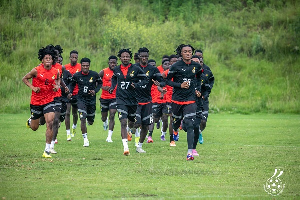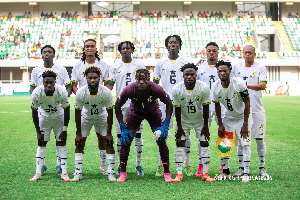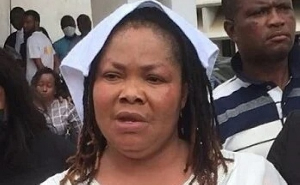For two Ghanaian-American brothers whose family just rescued the historic Illinois Service Federal Savings & Loan, taking over operation of the Bronzeville institution is coming full circle on an immigrant family journey.
The Bronzeville institution is among fewer than 25 black-owned banks nationwide and just one of two left in Chicago.
ISF had been on the block since a federal consent order in April 2015 forced it to convert from its depositor-owned model to shareholder ownership; the bank was seeking investors and needed some $10 million in new capital to stay afloat.
“We were seeking to diversify and had been looking at banking in the U.S. when we came across this opportunity,” says P.W. Chiefy Nduom, vice president and general counsel of Groupe Nduom, a conglomerate that operates businesses in Africa, Europe and the U.S. Groupe Nduom is now majority shareholder of ISF after investing $9 million into the bank.
The move keeps ISF, with its roots in the Great Migration, black-owned. It was started in 1934 by community leaders determined to help African-Americans who were moving to Chicago from the Jim Crow South and being denied bank loans for homes or businesses.
“We were interested in coming in,” says Chiefy Nduom, 33, of Washington, D.C. “We’d seen the bigger trends in technology and changes in the industry, and we also observed how black banks were being swallowed up, in many cases by non-minority institutions, so that you have this juxtaposition of opportunity increasing in the industry from an innovation standpoint but people of color being marginalized or left out of ownership.”
ISF, 4619 S. King Drive, and Seaway Bank — the nation’s third-largest black-owned bank, at 645 E. 87th — are a disappearing breed. Once the bedrock of African-American communities, a significant number of black-owned banks disappeared in the last decade, hit hardest by the 2008 recession and housing collapse, which brought on higher unemployment and foreclosure rates.
President Barack Obama’s administration has recently sought measures to bolster the remaining 24 such banks. At Seaway, the circumstances are not as dire as at ISF but it also is operating under a consent order with the U.S. Office of the Comptroller of the Currency.
ISF caught the eye of Groupe Nduom patriarch Paa Kwesi Nduom, 63, a Ghanaian who, like many immigrants, came to the U.S. in the 1970s seeking better opportunities. Settling in Milwaukee, he attended the University of Wisconsin earning bachelor’s, master’s, doctoral degrees, married wife Yvonne Nduom in 1976 and raised four children.
He was among the first African-American partners at Deloitte & Touche in Milwaukee. The parents returned to Ghana in 1991 to begin building Groupe Nduom, now employing over 3,000 worldwide in the financial services, hotels, media and entertainment, sports, and real estate industries.
“A mutual friend brought ISF’s CEO to D.C. to meet with my father. I was at that meeting,” says N. Kweku Nduom, vice president of business development & finance at Groupe Nduom.
“He was on this mission to save the bank and raise all this money, and he was going around meeting with potential investors. It just happened to come at a very nice time, when we were also looking at opportunities,” says Kweku Nduom, 37, who divides his time between Accra, Ghana, and the Washington headquarters of the family’s International Business Solutions.
“It was just sort of a courtship for a year and a half. The board was taking a look at us, and we were trying to figure out if this is the right opportunity. We all decided it was,” he says.
Groupe Nduom filed a formal application with the Comptroller of the Currency in November 2015; approval came April 28.
“The bank has been a crucial source of capital and banking services for families, local small businesses, faith-based institutions and nonprofit organizations in our neighborhoods,” outgoing Chairman/CEO Norman Williams tells GhanaWeb.com. “This marks a new chapter in the life of the bank, which will enable it to sustain the rigors of financial stress that have plagued many communities in Chicago.”
While their father serves as chairman, Kweku and Chiefy Nduom, who have spent the past three years learning the banking business, developing a business plan and hiring new management, will oversee the ISF investment.
“In terms of the way forward, there are a few priorities. We want to reach out and reassure all stakeholders, not only customers and employees but regulators and the community, that we’re here for good reasons, and it’s still a black-owned bank,” Kweku Nduom says.
“The mission and vision hasn’t changed at all. So people should be expecting a lot more of the same things they’re used to and comfortable with. At the same time, we’re looking at what opportunities we have to expand — not only the client base but the product offering, and I don’t necessarily mean new products but a different way of delivering some existing ones. We’re here for the long term. Coming back to the Midwest is a homecoming for us.”
Business News of Tuesday, 31 May 2016
Source: chicago.suntimes.com













